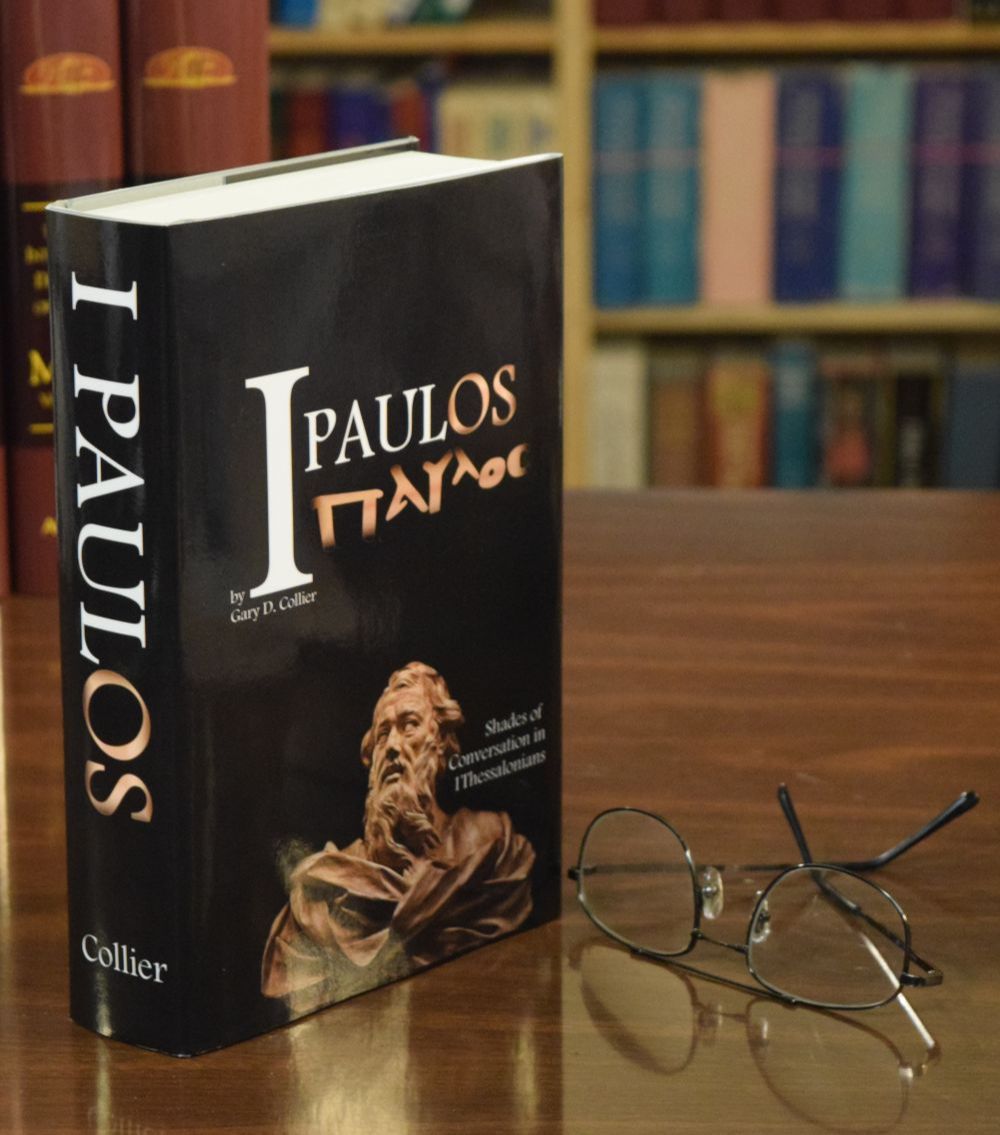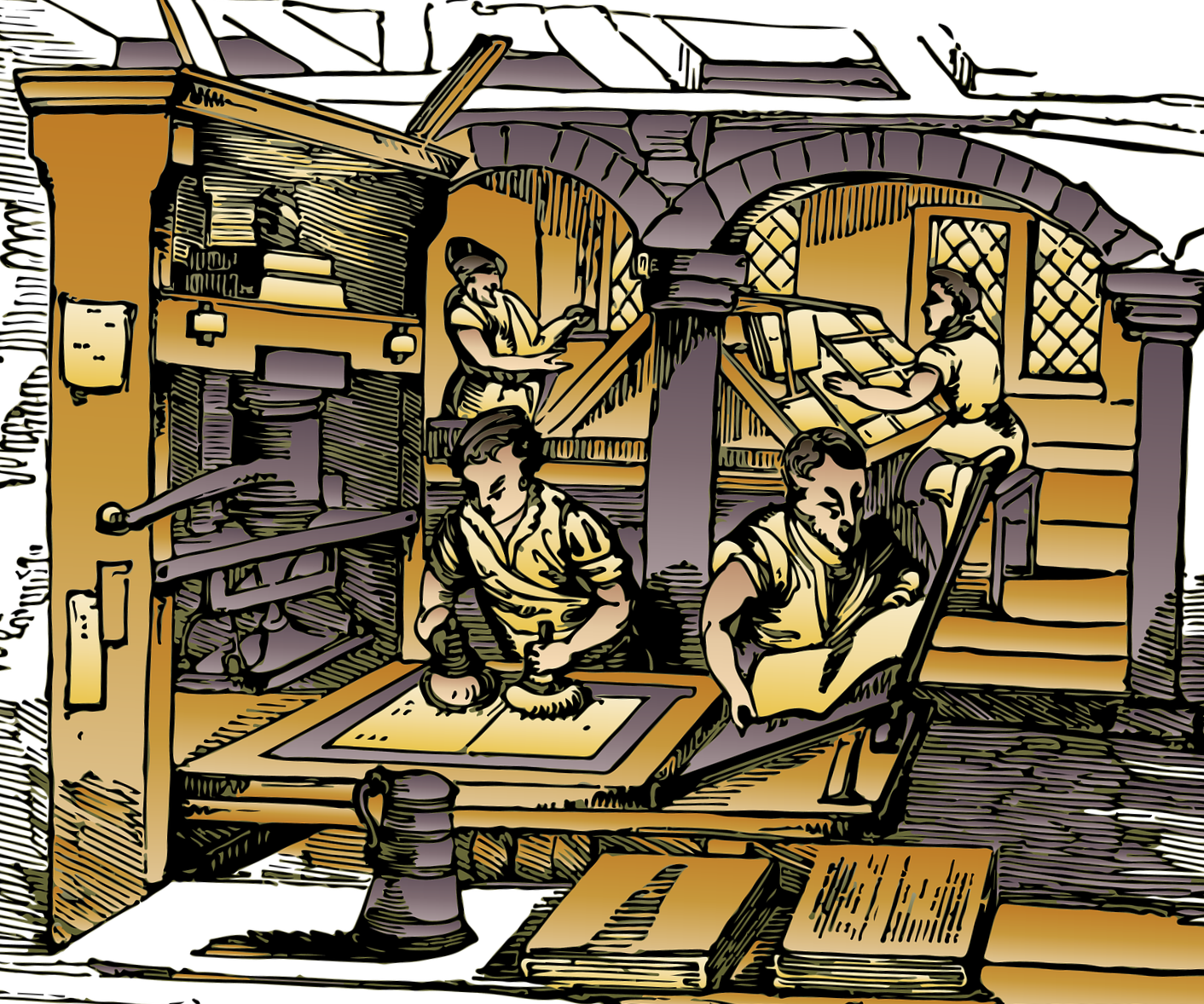An independent,
high-quality press
in a specialized
biblical-studies niche
Peer reviewed
Target reviewed
*Dialogē explained
At a Glance

Peer-Reviewed
All of the books we choose to publish go through multiple levels of peer evaluation, challenge, and review, as well as with target readers, during the writing and editorial stages.
This is spelled out in detail below under: "Standards and Quality" and especially "Publishing Philosophy."

Specialized
DP serves the specialized niche of responsible, contextual, and conversational biblical-text studies.
DP helps Bible readers
- to raise the bar for interacting with biblical texts,
- to become more independent readers,
- and to have the desire to help others read the Bible more responsibly.

Focused
DP serves Christian readers (formally trained or not) who want more from biblical texts than is usually available in their churches or popular writings. These readers might include preachers or other church leaders, teachers, small group facilitators, or any individual Bible students who simply want more.
We focus on readers who are personally invested in how they read, handle, and apply ancient biblical texts in the 21st Century.

Independent
DP is the publishing arm of the Institute for the Art of Biblical Conversation (IABC).
The Institute had its beginnings in 2004; the Press was founded 2017.
DP is not officially or unofficially associated with any particular church, school, or other organization besides IABC, a 501(c)(3).
Quality Norms & Standards
DP produces books of the highest quality in both workmanship and content.
The same processes and resources are used as with traditional, high-end publishers.
Prior to publication:
Each book goes through intensive editorial scrutiny for style and content.
Each book is subjected to rigorous
peer review and target audience review:
- with specialists in the subject field, and
- with multiple target readers.
See much more about this below under:
"Publishing Philosophy."

Current Books Published and Available
Click Hereto Open in New Window
Admin
Administrative Offices Located in
Cloverdale, IN
Publishing Outlook & Philosophy
Problems & Solutions
for Publishing in Biblical Studies
By Gary D. Collier
Standards
In biblical studies, whether on a popular or academic level, there is clearly a need for high standards. Although there is no such thing as a perfect process, the twin strategies for quality control have historically included:
- high quality editorial scrutiny
- peer review by qualified reviewers for methodological rigor.
Dialogē Press embraces both of these standards as essential, and then adds a third essential criterion (see below).
Types of Publishers
Without attempting to be comprehensive, there are three major types of publishers for biblical studies:
- Traditional/Mainstream publishers in biblical studies produce both academic and popular works, and they include a wide variety of well-known publishing houses such as Fortress, Eerdmans, Baker, Word, Zondervan, and others.
- Specialty Academic publishers include Brill, Peter Lang, SBL, and others.
- University presses, also academic, but which may operate on a wide spectrum—such as Yale, Indiana, ACU, and others.
Each of these publishing houses might be focused on different specialties, topics, agendas, or levels. But they all have in common the aim and effort at producing a high-quality product for their particular mission by employing the twin strategies of high-quality editorial scrutiny and peer review.

The Dark Side of Academic Publishing
Allan Savory "We're going to kill ourselves because of stupidity."
___________________________________
Ted Talk:
Research Culture is broken
___________________________________
Peer Review Broken?
___________________________________
Open Access to Journals
___________________________________
Peer Review Reality
The Dark Side of Publishing
There is plenty that's right with existing models—especially the efforts at quality control, credibility, and time-tested procedures. Academic publishing is needed and can offer great value.
But there is a dark side as well, and this is too often ignored or dismissed. Each of the following could be expanded greatly:
- Traditional academic publishing can sometimes hi-jack an author's work. More common than rare is the case at a recent conference of a young Ph.D. who had been looking for a teaching position for several years. To a group of peers, he walked through the process of getting his completed dissertation published by a major, highly respected publisher—as he was advised to do. The process took nearly 2 years, he received no up-front compensation for his labors, and the book was priced out of range for most people to purchase. Hence, very little exposure, almost no sales, and of course barely any royalties. But worst of all, the high profile publisher he had chosen had taken over complete control of his manuscript and did virtually no marketing for the book. (This is standard procedure unless you are already well-known with an established audience.) Hence, he, the author, had no editorial, creative, or decision-making access to the book that he had dedicated years of his life to, to explore other options. The effect? The research was removed from access to all but a very few, and the young scholar was left with nothing but feelings of anger, frustration, failure, and betrayal by a system to which he had just given an incredible amount of time, money, and focused labor. This scenario can be multiplied many times over.
- Traditional academic publishing is part of a larger academic system that sometimes excludes and marginalizes other highly trained scholars and their works. Libraries often won't even consider buying worthy books that are not published by traditional publishers. Journals likewise sometimes won't accept or review books from smaller or unknown presses even when the books published follow a more rigid standard than the journal itself.
- Because of high prices and practices of exclusion by libraries and academic institutions, published research in books and journals is often not readily available to independent scholars. This is not a minor issue, and it tends to exclude independent scholars and highly motivated students not currently enrolled in a university.
- Peer review, although good in theory, is, in practice, sometimes weak, highly biased, inconsistent, or even non-existent. Many are asking whether the system is broken entirely. The point, here, is not that the idea of peer review is bad; the point is rather that, in practice, (a) it can often fall prey to prejudice and favoritism, and (b) it has built-in limits of potentially blocking new kinds of approaches since they can be judged as "non-standard" and therefore unacceptable. These, too, are major issues.
The videos attached to this section (to the left or above) are specifically related to scientific scholars, journals, and books. These (and numerous others) illustrate the widespread nature of the problems with peer review and access to research (see also, Oxford Open Access). The same issues exist for biblical studies, and they can create problems for those doing research on any level or any topic. Access to research is a huge problem. Unfortunately, it ends up that unless one has a current university affiliation, there tends to be a kind of built-in prejudice, and the ability to do research, get published, or get published research reviewed becomes all the more difficult.
The Changing Landscape
The impact of high-quality, on-demand printing during the first quarter of the 21st century was like a meteor strike on the traditional book publishing landscape. That is not an overstatement. As a result of that explosive transformation, the walls surrounding and protecting traditional publishers (keeping all others out) have been obliterated. Authors—even academic authors—now live with two new realities:
- The technology of on-demand printing of books is an incredible, game-changing advance. It is equivalent in importance to the development of the printing press from the 9th-15th centuries. Traditional publishers know this; that is why even they use it.
- This technology is equally available to any would-be author. Authors are now able to choose between a traditional/mainstream publisher path or a more independent, on-demand path. This has never even been possible before the 1990s.
Now, there is no question about it, quality control is a completely legitimate concern. So the mountain to climb, here, is the strong prejudice in academia against whatever is not produced by a "recognized" publisher. This will most certainly change over time, because traditional publishers don't own quality—in fact, there are plenty of examples where they don't even produce it, even in academic works (see here and here).
The solution to this is not merely clutching onto old ways. What is needed is a stronger and more focused attention to superb-quality in all aspects of researching, writing, and publishing books and articles in both academic and more popular biblical studies. In the end, a book should not be judged by its cover—or its publisher—but by the quality of its argument and presentation.
Dialogē Press
Dialogē Press advocates that publishing must attempt
to keep integrity intact and prejudice at bay.
So, to the traditional dual criteria,
a third criterion is added:
Target-Audience Reviews.
(There is no sound. If the video stalls, try refreshing the page.)
All three are considered foundational.
From our editors, we ask for superior attention to format, style, grammar, spelling, wordiness, and the like.
From our Target and Peer reviewers, we ask seven (7) fundamental and guiding questions:
- Are the authors clear about what they are trying to accomplish with this book?
- Are the methods used clearly stated and consistently followed?
- Do the argument and presentation seem cutting edge and innovative, expanding the reader's vision?
- What areas are particularly strong in this book?
- What areas need bolstering? Why?
- Whether you agree with this book or not, do you feel this book makes a credible case for its position(s)? Why or why not?
- Is the book an engaging read? (Would you recommend the book to others?)
Traditional publishers will rightly continue to drive academic biblical publishing. But Dialogē Press believes that new technologies in publication have forever changed the publishing landscape for the better, opening up possibilities for authors and readers alike. Indeed, both traditional publishers and newer, smaller, specialized publishers will be able to thrive.
When compared to traditional publishers, Dialogē Press most closely resembles and functions like a university press. It was founded in 2017 as the publishing arm of IABC, The Institute for the Art of Biblical Conversation (an Indiana-based non profit corporation as of March 31, 2006 (under the legal name "Coffee With Paul Ministries." On February 4, 2016, IABC became a federally recognized 501(c)(3) Religious Corporation established for the pursuit of religious education.) As its publishing arm, Dialogē Press is a small, independent, high-quality, peer- and target-reviewed press, in a specialized biblical-studies niche, relying entirely on "on-demand" printing for the sake of time, expense, and resources.

The Name Dialogē
The word διαλογή | dialogē (pronounced dee-ah-lo-GAYE) is a rare noun in biblical and related literature, found only in the following two texts. It could be used to mean either
- a conversation or discourse (e.g., the biblical Psalm 103:34 above, where the "conversation" appears most directly to be the "song I am singing to KURIOS"—hence an ordered conversation with God in song); or
- an enumeration or ordered list of ideas or documents or a written account (e.g., the pseudepigraphical Psalms of Solomon 4:1 "A dialogue or conversation or account of Solomon." Some other manuscripts have a different word: "A Psalm." This implies that the two words are not used in substantially different ways: they both are describing the written piece.
The verb form διαλέγομαι | dialegomai occurs more often in biblical and related literature (20x) and means to discuss, reason with, argue with, conduct a discussion, speak with, and the like.
- OT: Exod. 6:27; Jdg. 8:1; Est. 5:2; Isa. 63:1;
- Apocrypha: 1 Es. 8:45; 2 Ma. 11:20; Sir. 14:20;
- NT: Mk. 9:34; Acts 17:2, 17; 18:4, 19; 19:8, 9; 20:7, 9; 24:12, 25; Heb. 12:5; Jude 1:9






